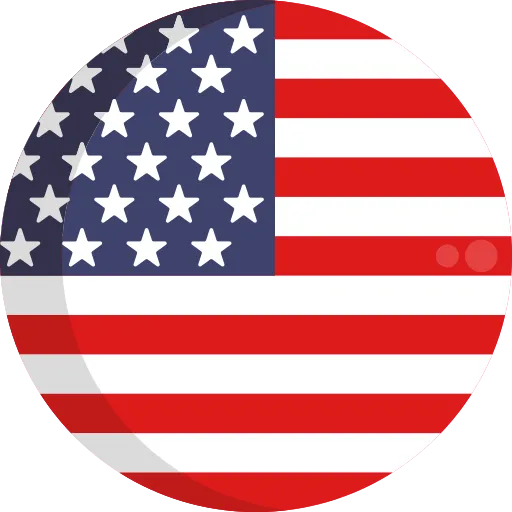SOMANS GLOBAL EDUCATION PVT.LTD.

Study in USA
USA is an educational hub with undergraduate, postgraduate, and doctoral degrees through 4500+ educational institutions. Their diverse culture and huge number of international students give the aspirants the best platform to develop a global attitude, which gives them a cutting edge to get jobs all over the world. The United States attracts the largest number of international students each year. Studying in the USA has become the most opted choice for Indian students; credit and credibility lie in the quality of education, implemented technology, huge career opportunities, and satisfying funding options. Thus, studying in the USA is the best educational investment. Students get financial assistance through scholarships.
Top benefits of study in USA
These benefits make studying in the USA a highly rewarding experience that can shape students’ futures and careers.
The USA is home to many of the world's top-ranking universities, known for their quality of research, teaching, and resources.
With a wide range of programs on offer, students can find unique majors or customize their course of study to fit their interests and goals.
The USA is at the forefront of research and technology, offering students opportunities to work with leading scholars and on groundbreaking projects.
Students from all corners of the globe study in the USA, providing a rich multicultural environment that enhances learning and personal growth.
The American education system is known for its flexibility, allowing students to easily switch majors or take diverse classes outside their primary field of study.
Universities in the USA offer extensive support services, from orientation programs to help with language skills, to make the transition easier for international students.
Graduating from a US institution opens doors to numerous career opportunities, both in the USA and worldwide, thanks to the country's prestigious academic reputation.
American universities provide a vibrant campus life that includes a variety of extracurricular activities, clubs, and organizations to suit every interest.
Studying in the USA allows students to build a global network of contacts, including peers, professors, and industry professionals, which can be invaluable throughout their careers.

Study in USA: Top Universities in the USA
Top Courses to Study in USA
| Bio-Medical Engineering | Chemical Engineering |
| Civil Engineering | Business Analytics |
| Environmental Health Sciences | Epidemiology |
| Population, Family & Health | Biostatistics |
Admission Requirements to Study in USA
- 10th and 12th (for bachelor’s course)
- Bachelor's degree certificate, individual Marklists (for master’s course)
- Resume or CV
- IELTS-6.0/6.5
- Medium of Instruction
- Scanned copy of the passport
- Statement of Purpose
- Letter of recommendation (2 Nos)
- Experience Letter (if applicable)
F-1 visa checklist for students study in USA
If you a regular student, you most likely will have to schedule an interview at the U.S. Embassy or Consulate in the country where you live for your US Student Visa. And it is during this interview that you have to submit the list of documents required for F-1 visa given below.
- Valid passport
- Receipts of SEVIS and visa fees payment.
- Form I-20 sent by your college/university.
- Confirmation slip after submitting your DS-160.
- Appointment letter of visa interview.
- Bank statements of three years to prove that you have enough funds to pay tuition fees. and living expenses.
- Passport size photos as per specifications.
- Originals of your school and college transcripts.
- Scorecard of your English language proficiency test such as IELTS or TOEFL.
- Payslips and letter of employment (if employed).
- Tax Returns for the past 3 years (Form 16).
- Scholarship letter (If you have one).
F. A. Q
FAQs on the Student Visa
Yes. You may have family or close friends in the U.S. who are able and willing to support you financially while you are in school. However, this sponsorship must be genuine. Every consular officer must believe the legitimacy of your financial evidence and it is extremely important that you are honest during the interview.
Each applicant’s case is different, but generally, consular officers encourage you to wait until your circumstances have changed or you have additional evidence that was not presented during your first interview before reapplying. The academic institution you choose to attend (and the I-20 you present) should be the one that is best suited to your academic interests and financial resources.
You do not need a new visa as long as you have a valid I-20 and a valid visa.
No, the type of school has no bearing on your qualifications for a student visa.
As a student visa applicant, you must convince the consular officer that you have the ability, intent, and means to study in the U.S. The officer also must believe that you have a residence abroad to which you intend to return after finishing your education.
Not necessarily. As long as you can show that you have the means to repay the loans without resorting to illegal employment in the U.S. this will not be counted against you.
Most academic institutions require the TOEFL, results for admission.

